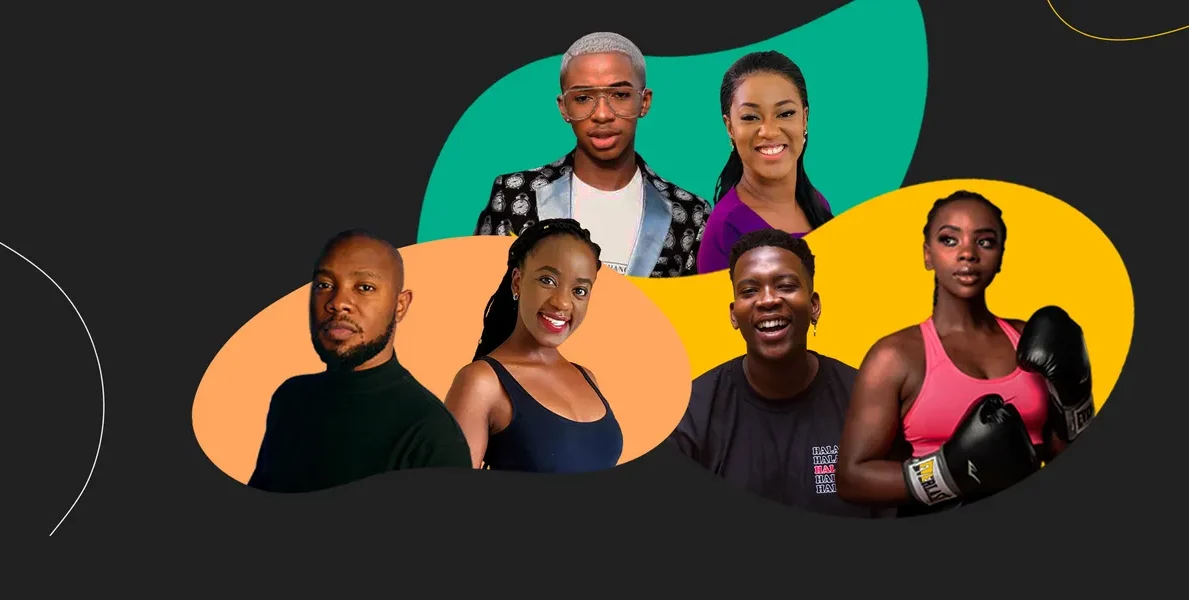The African Creator Economy

The African creator economy is undergoing a period of rapid expansion, heralding significant opportunities for economic empowerment throughout the continent. As of 2023, the valuation of this emergent sector stands at an impressive $3.08 billion. Projections reveal a promising trajectory, with expectations set to reach $17.84 billion by 2030. This growth translates into a remarkable compound annual growth rate (CAGR) of 28.5%, showcasing the vibrant potential inherent within the creator economy in Africa.
From a global overview, creator economy is experiencing significant growth and is projected to continue expanding in the coming years. As of 2023, the global creator economy is valued at approximately $200 billion, with projections suggesting it could surpass $600 billion by 2036, growing at a compound annual growth rate (CAGR) of 23% during the forecast period from 2024 to 2036. Another estimate suggests that the creator economy could reach $480 billion by 2027, doubling from its current size of $250 billion. Regionally, North America holds a significant share of the creator economy market, with over 35% of the market share as of 2024. The region’s creators and influencers have been quick to adopt new platforms, contributing to this dominance. The market is also expanding rapidly in other regions, with Asia-Pacific, Europe, and South America showing notable growth
The term “creator economy” refers to the ecosystem surrounding individuals who create and monetize content, leveraging platforms like YouTube, Instagram, TikTok, and emerging indigenous digital platforms. African creators span a diverse range of fields, including arts, music, fashion, storytelling, and digital entrepreneurship. Their contributions offer not only entertainment and education but also represent a transformative force in the socio-economic landscape.
This burgeoning economy is enabled by increasing internet penetration, the proliferation of affordable smartphones, and advancing digital infrastructure across the continent. As a result, the creator economy is facilitating broader access to global markets, enabling content creators to reach a wider audience and monetize their talents in unprecedented ways.
Furthermore, the African creator economy is characterized by unique cultural and linguistic diversity, which enriches global digital content with fresh perspectives and narratives. This diversity not only differentiates African creators on the global stage but also fosters an inclusive and connected digital community.
The significant growth of the African creator economy underscores its potential as a powerful driver of economic development. By tapping into this digital revolution, Africa stands at the threshold of harnessing a new wave of financial and cultural capital. As this sector evolves, it holds promise for job creation, skills development, and an enriched global exchange of ideas and creativity.
Key Drivers of Growth

The African creator economy is witnessing remarkable expansion driven by several key factors. A first major driver is the continent’s burgeoning youth population. With over 60% of Africa’s population under the age of 25, this demographic shift is significantly contributing to both the creation and consumption of digital content. Young Africans are not just passive consumers; they are actively engaging as content creators, fueling a vibrant ecosystem of innovation and creativity. This large youth demographic brings fresh perspectives and dynamic energy into the creator economy, fostering an environment ripe for digital content development.
Another crucial factor propelling this growth is the unprecedented rise in smartphone usage and internet accessibility across Africa. Over the last decade, the continent has seen a surge in smartphone adoption, facilitated by decreasing technology costs and the relative affordability of mobile internet. This has democratized digital content creation, enabling more individuals to produce and disseminate content without the need for expensive equipment or extensive technical know-how. With web connectivity becoming increasingly widespread, digital platforms have become more accessible, allowing creators from even the most remote areas to participate in the digital economy.
The widespread popularity and influence of social media platforms also significantly contribute to the flourishing creator economy in Africa. Platforms such as YouTube, TikTok, and Instagram serve as crucial channels for content distribution and audience engagement. These platforms offer creators the tools and reach required to showcase their talents, monetize their content, and build loyal followings. With their interactive features and the ability to connect directly with audiences, social media platforms are indispensable in fostering a robust creator economy.
In conclusion, the African creator economy’s rapid growth is powered by a young and dynamic population, increased smartphone and internet penetration, and the embedded influence of social media platforms. These factors collectively create a fertile ground for digital content innovation, offering endless opportunities for aspiring creators across the continent.
Economic Empowerment and Opportunities

The evolution of the creator economy is ushering in a new paradigm in the digital realm, significantly influencing economic empowerment across the African continent. At its core, the creator economy enables individuals to monetize their content through various digital platforms, thus fostering entrepreneurship and creating new revenue streams. This shift is profoundly impacting the economic landscape by democratizing opportunities and providing a platform for diverse voices to flourish.
Many success stories exemplify the empowerment resulting from the growth of this economy. For instance, Nigerian YouTube star Dimma Umeh has leveraged her presence on the platform to build a lucrative career, creating content ranging from beauty and lifestyle to personal stories. Such influencers not only generate income through ad revenue but also attract sponsorships and collaborations with global brands, further amplifying their economic reach. Similarly, in Kenya, digital entrepreneur Sharon Mundia has turned her blog into a business, launching multiple ventures and partnering with major brands.
The broader economic implications of the burgeoning African creator economy extend beyond individual success stories. Various sectors are reaping the benefits of this digital transformation. In media, traditional outlets are partnering with digital creators to tap into their audiences, leading to a synergistic relationship that enhances content reach and variety. The advertising industry is also witnessing a shift, with brands increasingly investing in influencer marketing, recognizing the authentic and direct engagement that creators offer to their followers.
E-commerce is another sector benefiting significantly from the creator economy’s rise. Creators often serve as key opinion leaders, influencing consumer behavior and driving online sales through affiliate marketing and sponsored content. This interaction elevates e-commerce platforms, increases product visibility, and drives consumer engagement, creating a vibrant online marketplace.
In essence, the creator economy is not just a digital revolution; it is an economic engine powering individual and sectoral growth, reshaping the African economic landscape in profound and impactful ways. As digital platforms continue to evolve, the potential for further economic empowerment and opportunities appears boundless.
Challenges and the Way Forward

The African creator economy has experienced remarkable growth, yet several challenges continue to hinder its full potential. One of the most significant obstacles is inconsistent internet connectivity across various regions. Reliable internet access remains a critical foundation for the digital ecosystem, and its absence can limit creators’ ability to produce and distribute content effectively. This disparity affects not only urban versus rural areas but also varies significantly from one country to another within the continent.
Another pressing issue is the limited access to digital tools and resources. Many aspiring creators lack the necessary equipment, software, and training to develop high-quality content. This gap in resources can stifle creativity and innovation, trapping potential talents in a cycle of mediocrity. Furthermore, the affordability of these tools plays a pivotal role; high costs can deter many from entering or excelling in the creator economy.
Regulatory hurdles also pose significant challenges. The creator economy thrives in an environment of creative freedom and ease of business operations. However, varying regulations, high taxation, and restrictive content policies in different nations can inhibit growth. Navigating this fragmented regulatory landscape requires substantial effort and resources, often leading to decreased activity and innovation in the sector.
To address these challenges, a multi-pronged approach involving various stakeholders is essential. Governments can play a crucial role by investing in infrastructure to improve internet connectivity across the continent. In addition, adopting progressive policies that support the digital economy and offering incentives for technology sector growth can encourage more participation.
Private sector players, including tech companies and financial institutions, can contribute by providing affordable and accessible digital tools, training programs, and financial support tailored to creators’ needs. Collaborative ventures between private enterprises and educational institutions could also foster skill development and innovation.
Overall, the creator economy is characterized by a large number of participants, with more than 50 million global creators, of which only a small percentage are considered professionals earning substantial incomes. The ongoing development of AI tools and features is also expected to enhance content creation, further fueling the growth of the creator economy. Creators themselves must be proactive by leveraging available resources and forming networks and communities that foster knowledge sharing and collaboration. Embracing new technologies, staying adaptive to changes, and continuously enhancing their skills will be vital.
Overall, a concerted and coordinated effort is necessary to realize the full potential of the African creator economy. By addressing these challenges head-on, the path towards sustainable growth and a thriving digital content ecosystem can be paved.










